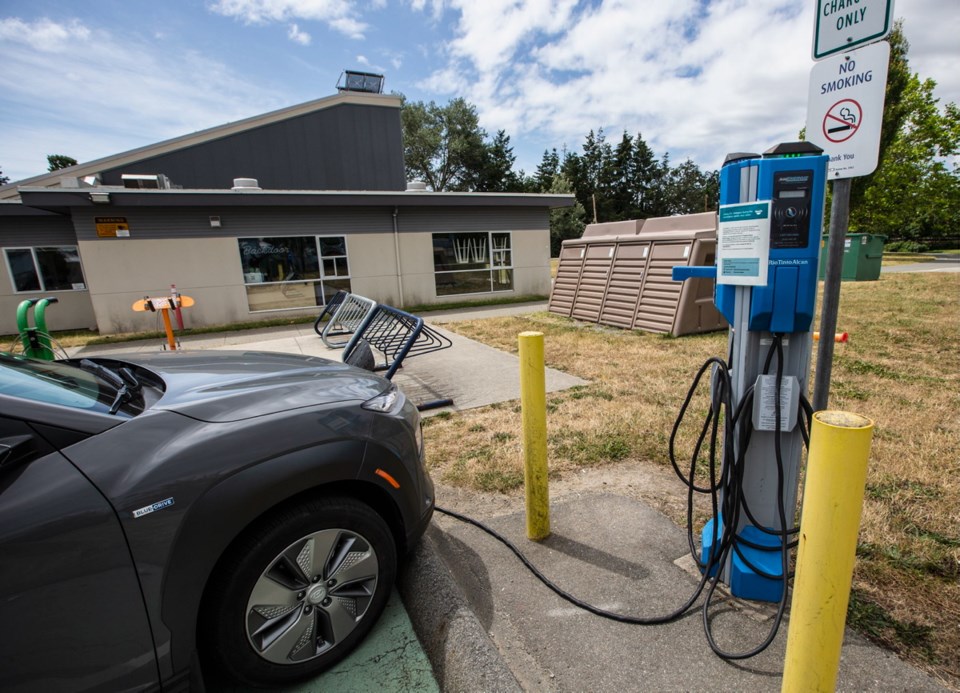Saanich council is giving a boost to its support for electric vehicles with a plan to require charging units in all new multi-family homes built in the municipality.
Saanich Mayor Fred Haynes said the change would involve updating an existing bylaw and will go to a public hearing for community input. He said Saanich is “ahead of the pack” when it comes to local municipalities enabling use of EVs.
Nine B.C. municipalities, including Vancouver, other Lower Mainland jurisdictions and Squamish, require EV preparation in all residential parking stalls, according to a staff report.
“To our knowledge, no one else [in Greater Victoria] is requiring this at this point, but I thing it’s going to happen,” Haynes said. “I think the residents see the need.”
The homes would be “EV-enabled,” Haynes said.
“That means that they have electrical ready to plug in, so that the new renters or owners of the multi-family units — all they need to do is to bring forward their EV car.”
Haynes said the move has been considered for the past three years, with council looking to have housing units equipped so the electrical system can be added on.
“But we’ve gone a step further now.”
The next step will be to ask for the same capability for all new single-family dwellings, Haynes said.
The goal is to make it easy for residents to switch from gasoline or diesel cars, as part of Saanich’s climate-action plan, said Haynes, noting 60 per cent of greenhouse gases come from transportation.
The Saanich plan calls for 36 per cent of personal vehicles in Saanich to be electric by 2030. The Saanich staff report noted that EVs accounted for only about five per cent of vehicle sales in Canada in 2018.
Haynes said Saanich has received $100,000 from the federal government that it will use to create 20 more public charging stations, at an additional cost to the municipality of $280,000.
Some will be in parks, where the infrastructure can be a “bit more expensive,” he said.
“We’re stepping up to try to get 44 EV charging stations in the next little while.”
Chargers are free to use, but have a three-hour time limit.
City of Victoria councillors are set to discuss today the establishment of an electric-vehicle-charging zone, and whether to collect fees for EV charging. The city’s long-term plan calls for 30 per cent of passenger vehicles to be powered by renewable energy by 2030, and 100 per cent by 2050.
A Victoria staff report said that fast growth in EV use has increased demand for chargers, and a fee could help keep chargers available and encourage turnover of parking stalls.
The aim is to ensure EV infrastructure is used “fairly and efficiently,” the report said.
Public charging units have been in place in Victoria since 2013.
A group of EV owners drove to the legislature Monday to call for increased charging access.



